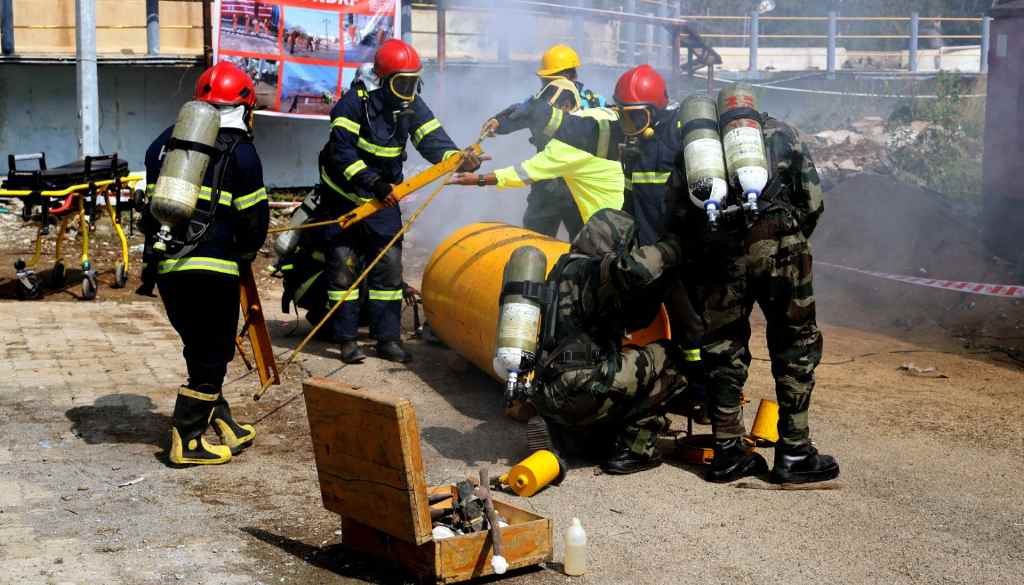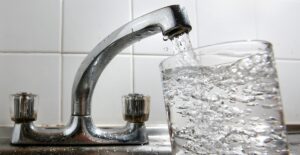Pune: PCMC Conducts Emergency Drill to Safeguard Against Hazardous Chemical Incidents

Varad Bhatkhande
Pimpri, 12th January 2024: In a proactive move to enhance safety measures around hazardous chemical substances, industrial establishments in Pune are urged to prioritize safety protocols.
The Pimpri Chinchwad Municipal Corporation (PCMC) is actively engaging with emergency management systems to ensure swift and effective responses to potential accidents. Notably, mock drills are scheduled across various industrial zones to minimize risks and prevent loss of life and environmental damage.
An emergency exercise focusing on chlorine air leakage control was executed today at the Sector 23 water treatment centre in Nigdi by PCMC.
Speaking on the occasion, Additional Commissioner Pradeep Jambhale Patil emphasized the significance of coordination among multiple agencies, including PCMC, NDRF, Pimpri Chinchwad Police, Pune Disaster Management, Maharashtra Pollution Control Board, and Directorate of Industrial Safety and Health.
The drill saw the active participation of key authorities, including Joint Commissioner Chandrakant Indalkar, Dr Rajendra Wable of Yashwantrao Chavan Memorial Hospital in Pimpri, Chief Engineer (Water Supply) Shrikant Savane, and representatives from Disaster Management, among others. Security personnel, NDRF teams, police inspectors, and officials from various departments joined forces to simulate a response to a potential chemical incident.
Chlorine, commonly used for water purification in municipal treatment plants, was the focal point of the emergency drill. Chlorine cylinders, integral to the water purification process, were simulated to experience an air leakage scenario. The drill aimed to test the coordination and efficiency of emergency response teams in dealing with chemical accidents.
A chlorine gas leakage at Kasarwadi swimming pool, managed by PCMC, resulted in 22 hospitalizations during routine water purification. The incident, caused by a gas tank mishap, triggered a rapid response from the fire brigade and police. At that time, there was limited awareness among authorities and the public about handling such incidents, but subsequent measures are aimed to addressed this gap.
Providing insights into preventing toxic air leakage, NDRF Police Inspector Ajay Kumar Yadav emphasized the dangers associated with chlorine gas. He stressed the need for public awareness regarding the properties of chlorine and the importance of frequent checks at water treatment plants. Additionally, Yadav underscored the necessity of coordination among emergency agencies, dispelling rumours to prevent unnecessary panic.
The emergency exercise commenced with a simulated report of chlorine air leakage. Prompt response from the disaster management and fire department, coupled with the involvement of medical, police, and pollution control authorities, showcased the city’s preparedness. The NDRF successfully contained the air leakage using advanced equipment, with support from the municipal fire department.
A total of 51 NDRF personnel, 29 municipal firefighters, 22 police personnel, 20 riot control team members, and 11 security guards actively participated in the drill. The engagement aimed to enhance the skills of emergency responders and ensure a coordinated approach to chemical incidents.








